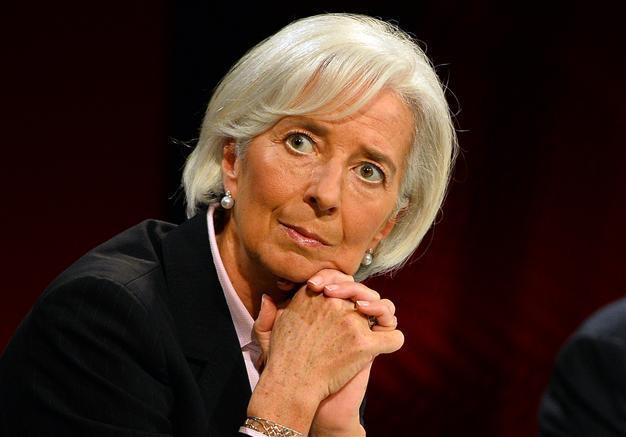IMF, Britain warn emerging economies ahead of G-20
SYDNEY - Agence France-Presse

AFP Photo
IMF chief Christine Lagarde and British finance minister George Osborne on Feb. 20 demanded emerging economies get their own houses in order, after some attacked US monetary policy in the run-up to G-20 talks this weekend.While Lagarde also cautioned the US Federal Reserve to be “mindful” of the impact of its stimulus exit on major developing players, Osborne urged emerging markets to refrain from “finger-pointing and distractions” at the Sydney meeting of G-20 finance ministers and central bankers.
Countries including Argentina, India, Russia, South Africa and Turkey have suffered sharp losses to their currencies as a by-product of the Fed’s “taper” – the ending of a mammoth stimulus program that is seeing capital flows switch abruptly away from the developing world.
Lagarde said “just a hint of tapering” in May last year had sent ripples through the markets and the International Monetary Fund had asked “the US authorities, particularly the Fed, be mindful of what’s happening elsewhere when you do what you have announced”.
“Don’t go too fast and explain what you are doing,” the IMF chief said in a public question-and-answer session recorded for ABC television in Sydney, describing the issue as “high on the agenda” this weekend.
But she said a “mind the shop at home” message also applied to the developing economies.
“In other words, emerging market economies, you need to look after your various equilibriums.
“You need to look at your fiscal policy, you need to look at your monetary policy, you need to have the house in order to resist the volatility that can be induced from the tapering of the US Fed, in particular, at the moment.” Lagarde’s remarks were echoed by Britain’s finance minister, who said it was “neither accurate nor useful” to blame Western monetary policy for shaky currencies or high deficits in emerging markets.
“The underlying causes are domestic fragility in those countries, often built up over a long period of time -- and that is why some emerging markets have been much more affected than others,” Osborne, who heads to Sydney today, said in a speech to business leaders in Hong Kong.”We all need to get our houses in order.”
Osborne backed the agenda laid out by the G-20’s Australian presidency for what he called “comprehensive and ambitious national reform agendas” to address fiscal policy, financial regulation and structural blockages. That program is backed by the IMF, but Lagarde said G-20 central banks should also signal their intentions clearly given the world’s economic interdependence.
“There has to be enough cooperation between central bankers so that they are mindful of what the consequences will be, not just at home where they do the tapering, but elsewhere in the world where we have seen some volatility,” she said.
Lagarde supported Australia’s call for bolder growth targets than the 3.7 percent expected globally this year, saying “there is a potential for doing better and for doing more if only countries were to take some action.” Asked whether the IMF stood ready to assist in the event of a major emerging economies crisis linked to the US Fed’s wind back, she said: “We would have the instruments.
“And to the extent that more is needed, different approaches are needed, we have to be flexible. We have to adjust, we have to respond to the membership(‘s) needs,” she said.
















